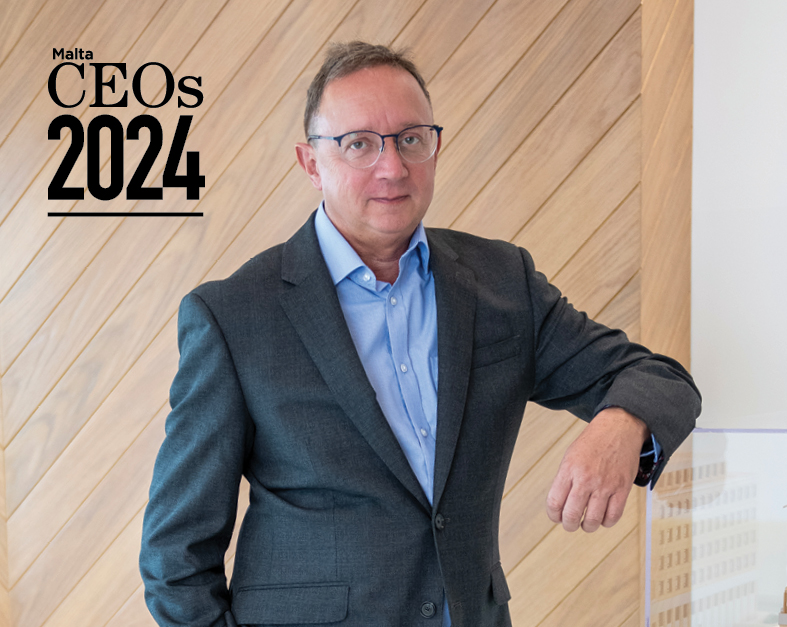Most business leaders acknowledge that people are at the heart of the organisation, yet many still overlook the impact that effective people management can have on overall performance.
People management skills, those techniques utilised to ensure people are provided for and have everything needed to get their jobs done, can have a greater effect than raw talent. As a result, it is integral for business leaders to understand and cater for different people’s needs to make sure that the workplace is functioning correctly.
Therefore, business leaders need to appoint the right managers, as they are the figures that shape workplace culture, particularly when faced with diverse teams.
This is particularly important when a team is neurodiverse. Indeed, managers must hone their skills in identifying neurodivergent individuals and ensure they are respected at the workplace.
Speaking to MaltaCEOs.mt, Joseph K Muscat, Owner and Consultant of Joseph K Muscat Neurodiversity Consulting, pointed out that business leaders have to ensure that a “people-centric approach” is in place in such instances, doing so through the introduction of necessary training for managers.

In order to best explain the concept of neurodivergents, Mr Muscat first delved into the concept of neurodiversity, which is succinctly defined by Australian Sociologist Judy Singer as the acknowledgement that “our thinking, processing, and behaviour vary naturally”, advocating for society to embrace and honour this diversity.
“Neurodivergents constitute a segment or society characterised by their unique cognitive and behavioural patterns, deviating from the neuromajority,” he explained.
“Unfortunately, this group has historically faced marginalisation, often categorised as having learning disabilities, within the medical model,” he said. This category includes conditions such as dyslexia, ADHD, dyscalculia, autism, developmental language disorder, developmental coordination disorder, and Tourette Syndrome.
In the process of examining vast spectrum of neurodivergence, Mr Muscat, who is neurodiverse himself, noted that it becomes evident that this community encompasses individuals with “diverse educational backgrounds”, from college and university degrees to various certifications.
“In essence the neurodivergent community seeks to shift the focus away from the medical model, emphasising the creation of environments that respect and nurture their human potential, ensuring their talents do not go to waste,” he said.
Relating this to workplace culture, Mr Muscat remarked that it is “imperative” that managers refrain from identifying or diagnosing neurodivergence.
“Managers are not medical professionals, and this matter is sensitive, given that over 65 per cent of neurodivergent individuals avoid disclosure due to fear of stigma and career repercussions. Furthermore, some may not self-identify as neurodivergent or remain undiagnosed,” he added.
As a result, Mr Muscat stressed that managers must undergo neurodivergent awareness training to “effectively support their employees, employing appropriate strategies and resources”.
However, in addition to training, he also pointed towards a few signs that neurodivergent individuals are struggling at the workplace, one being the possession of communication challenges. “Neurodivergent individuals might struggle with vague language and sarcasm. Clear, precise, and specific communication is crucial in such instances,” he explained.
Mr Muscat added that such individuals might also have working memory issues, as some may have difficulties retaining and processing information. Therefore, managers should “combine verbal, written, and visual communication, reinforcing it in manageable segments”, and hence regular check-ins and the opportunities for clarification might be beneficial.
Due to the aforementioned difficulties, neurodivergent individuals might also have slower processing speeds, and so extra time to receive, process, and respond to information could prove helpful.
However, he also pointed out that there are some individuals that might exhibit a “rapid processing speed, indicating an accelerated pace of thought”. “This mental ‘overclocking’ necessitates the provision of ample room for them to offload their thoughts, ideas, and questions for potential responses. Failing to facilitate this process can potentially result in heightened anxiety,” Mr Muscat said.
Neurodivergent individuals can also possess sensory sensitivities, with triggers relating to various stimuli such as sounds, people talking, smells, and also paint colour. Hence, managers should be “accommodating, allowing employees to take frequent breaks, or providing less sensory-sensitive spaces”.
Lastly, he acknowledged that there might be various other executive function challenges, such as trouble following instructions, being organised, time management, prioritisation, and also project completion. In order to help neurodivergent individuals, managers need to communicate clearly, providing chunked instructions and also assistance in time management and prioritisation.
Mr Muscat remarked that these are a few of the signs and strategies managers should be aware of, as the aforementioned factors can lead to mental health challenges like anxiety, rejection sensitivity, feeling overwhelmed, and burnout.
“A significant contributing factor to mental health challenges is that neurodivergents often expend a considerable amount of energy masking their traits to conform within a predominantly neuromajority system,” he highlighted.
When asked what managers can do better to identify and tweak their approach accordingly in the absence of training, Mr Muscat said that business leaders and managers must “align with employee needs, which, in turn, improves overall functionality”.
“Achieving this alignment necessitates the removal of barriers that hinder neurodivergent employees from excelling in their roles. However, these barriers are specific to individual needs, and employees themselves might not always recognise them due to varying job contexts,” he said. This is why a “people-centric approach” is required within a business, whereby business leaders and managers act as coaches to identify strengths and challenges, “enabling effective support”.
In this regard he suggested the use of Spike Profiles, psychological tools tailored for neurodivergent individuals to identify strengths and challenges, together with coaches who have an understanding of neurodivergence and can thus provide support.
The lack of a people-centric approach can result in neurodivergent employees facing a lack of psychological safety and lower career satisfaction.
In order to curb this issue, Mr Muscat suggested the focus on what he defined as “Inclusion Neurodivergent Principles”, which are people-centricity, flexibility, identification of strengths and support for challenges, reflection, and patience.
“Psychological safety entails allowing neurodivergents to be themselves within reasonable limits, free from judgement for their distinct thinking and work methods. This involves fostering an environment where questions and opinions are encouraged and where accommodations elevate strengths and mitigate challenges, thereby enabling successful performance,” he said.
He explained that career satisfaction is dependent on the previously mentioned principles, together with psychological safety.
“Historically, neurodivergent individuals have faced challenges in career progression, with recognition and advancement often denied. Providing attention and daily recognition are pivotal, as research demonstrates that these factors enhance performance, retention, and innovation, resulting in a mutually beneficial outcome,” Mr Muscat added.
He concluded that essentially, attention and daily recognition lead to a “win-win scenario” for business leaders, managers, and employees.
Mr Muscat has worked as an Inclusion and Diversity Consultant for neurodiversity within the workplace and with entrepreneurs for more than two years. He was diagnosed with visual motor, visual perception, working memory, and dyslexia, which he says have been “both a struggle and a blessing” for him throughout his education, relationships, employment, and his various businesses.
Nadia Giordimaina appointed Director Regulatory & International Affairs at KM Malta Airlines
She transitioned into the role in March, having worked at the previous flag carrier, Air Malta.
Ryanair CEO calls on EU citizens to vote in favour of parties who support ‘deregulation of air travel’
He says Ryanair, together with other low-cost airlines, have led to a revolution that has freed travellers from flag carriers’ ...
54% of global CEOs view sustainability as a higher priority than they did last year – EY survey
Two-thirds of investors feel companies are now ‘greenhushing’ due to fears of being labelled as greenwashers.
Keeping up with AML compliance changes ‘increasingly feels like a losing battle’ – CEO Daniel Gambin
Daniel Gambin recently left Kindred Group to co-found Letzz, a payment solutions company.











